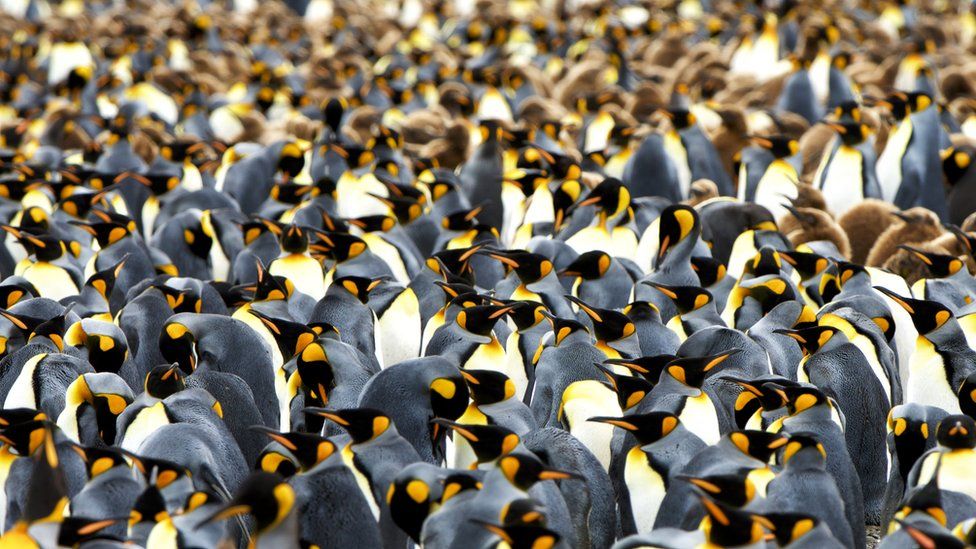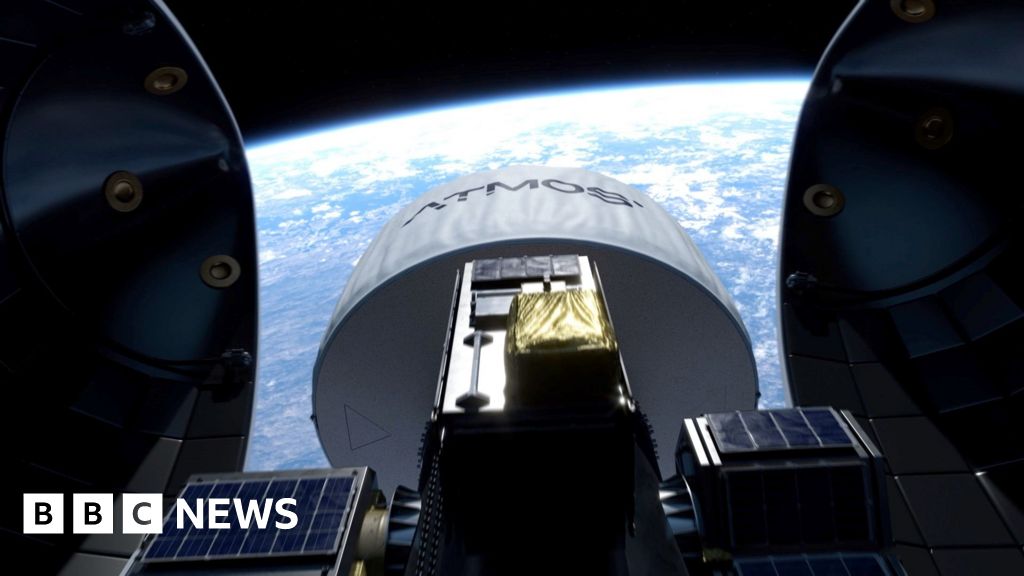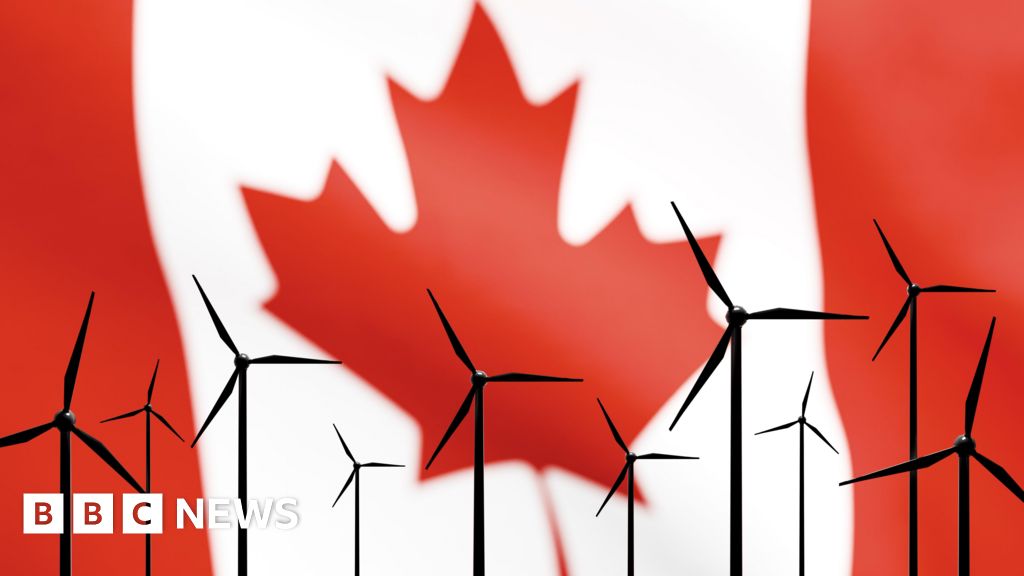ARTICLE AD BOX

Penguins gather on South Georgia in prodigious numbers
Bird flu has been confirmed in 10 penguins on South Georgia, one of the world's great wildlife havens.
Avian influenza had already infected other seabirds and mammals on the British Overseas Territory, but scientists report gentoo and king penguins have now fallen victim, too.
The breeding season is closing on the sub-Antarctic island so the immediate impacts are likely to be limited.
But there'll be concern for next season when wildlife gathers again en masse.
The beaches on South Georgia are famous for their spectacular aggregations - a million-plus individuals all jostling together to court, mate and bring up their young.
"I liken South Georgia to the Alps with Serengeti-style wildlife around it. The wildlife concentrations around the coast are just phenomenal - multiple species of penguins, albatrosses, and seals," explained Dr Norman Ratcliffe, a bird ecologist from the British Antarctic Survey.
"If bird flu were to take a hold and cause very high mortality across the island, it would be of conservation concern globally. But at the moment, it does seem to be somewhat limited in the way it's spreading," he told BBC News.
Scientists are on alert for signs of bird flu on islands around the Scotia Sea
High Pathogenicity Avian Influenza (HPAI) has been in existence for decades but the world is currently in the grip of a major flare up, with the H5N1 strain of the virus causing the deaths of countless wild and domesticated birds.
Antarctica and its outlying islands have escaped the worst due to their remoteness. But this situation is on the turn.
Bird flu was first identified on South Georgia in October 2023, in the large scavenging seabird known as the brown skua, with detections in kelp gulls shortly after.
Then, in January this year, cases were confirmed in elephant and fur seals.
It's also spread to Antarctic terns and wandering albatrosses.
Penguins are the latest animal group to be infected, with five gentoos and five kings testing positive.
The cases were confirmed in samples sent back to the UK to the International Reference Laboratory for Avian Influenza at the Animal & Plant Health Agency (APHA) laboratories in Weybridge.
Image source, Getty Images
Image caption,Other animal groups, such as the wandering albatross, have had confirmed cases on South Georgia
It's not a great surprise. The virus has already got to gentoos on the Falklands some 1,500km to the west, so it was probably only a matter of time before South Georgia's also became infected.
"Skuas winter around South America as do giant petrels and we think these birds are the vector that bought the disease into South Georgia," said Dr Ratcliffe.
"Skuas are constantly in amongst the penguin colonies scavenging and preying on eggs and chicks. If there's a surprise, it's that it's taken this long for the virus to be manifested in the penguins."
Scientists are watching closely now to see how bird flu interacts with the different penguin species, which on South Georgia include kings, gentoos, macaronis and chinstraps.
Macaronis, for example, will spend much of the coming southern winter at sea, which will help them avoid infection. Kings and gentoos, however, will continue to roost on shore, leaving them open to further exposure.
Image source, Getty Images
Image caption,Gentoo penguins have already been affected in the Falklands
As for the Antarctic proper, two dead skuas infected with HPAI were recently picked up by Argentine scientists near their Primavera base on the continent's peninsula, so the virus is unquestionably moving south.
But how far it would progress and what its impacts might be was highly uncertain, said Dr Ashley Banyard, who leads the avian virology workgroup at the APHA.
"Penguins live in very close proximity to each other, so that lends itself to the idea that they might spread the virus rapidly between each other. But we don't know how easily the virus can get into different penguin species, what sort of clinical disease it might cause and how rapidly it might spread between birds themselves," he told BBC News.
Surveillance is key, and this is being assisted by the many cruise ships that now sail in Antarctic waters.
Members of the International Association of Antarctica Tour Operators (IAATO) have long had protocols to prevent the accidental spread of disease by tourists in pristine environments, but these have now been stepped up because of bird flu.
"Nobody lands on a beach until there's been an assessment done to show if there's any strange behaviour or high mortality," said Amanda Lynnes, the director of environment and science coordination at IAATO.
"Antarctica is a huge continent but we're actually quite a small community in a way, so the information flow goes rapidly to all stakeholders who need to know and can advise."

 1 year ago
44
1 year ago
44








 English (US) ·
English (US) ·